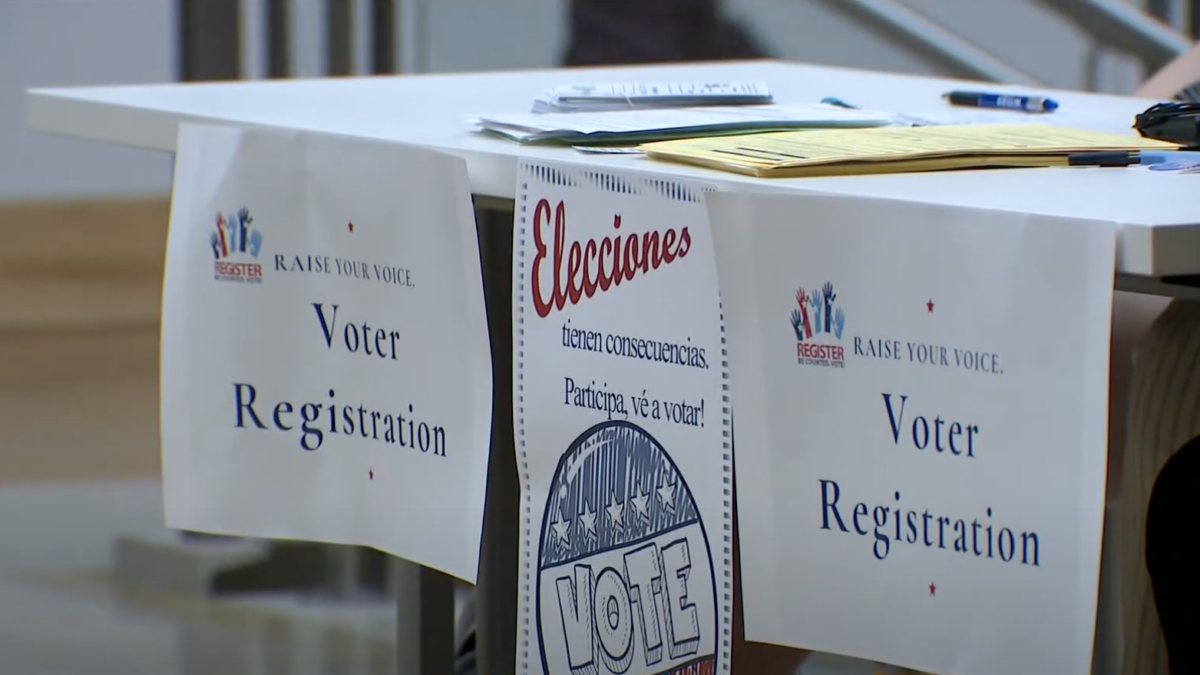To tell by the past few weeks, America’s universities have become so saturated with woke politics that they have forgotten how to teach basic economics, or Democrats never bothered to take those classes (or both). That’s the only logical reason to explain why policy-makers have shown an ignorance, and incoherence, about the biggest issue facing American families.
But if people in Washington can’t understand, or care, when parents get crushed by skyrocketing food and gas bills, they may after November 8. The public outrage over inflation, and the left’s bumbling responses to it, are driving voters of all stripes away from Democrats in droves.
Clueless Congress
Politico began a recent article with an anecdote whereby leftist Rep. Katie Porter, D-California, tried to teach her Democratic colleagues about inflation, and they apparently responded like she was from Mars:
Only after Rep. Katie Porter put bacon in her cart at her local grocery store recently did she notice that its price had spiked to $9.99 a pound. Reluctantly, she put the package back.
It was a dose of reality that Porter, a California progressive and single mother of three, has long understood. But she’s not sure all of her Democratic colleagues share her interest in connecting to average Americans’ experiences outside the Beltway.
When Porter gave an emotional speech about how inflation has been hitting her family for months during a private House Democratic Caucus meeting last week, she said it seemed like the first time the personal toll of high consumer prices had sunk in for some lawmakers in the room.
This story seems shocking, but not altogether surprising. Members of Congress make $174,000 per year, with (illegally) subsidized health coverage and other benefits that many ordinary working Americans don’t receive. That amount of annual household income is more than three times the U.S. median. So why would the average member of Congress know, let alone care, whether bacon costs $3.99 or $9.99 a pound?
Professorial Policy Seminars
While some congressional offices express indifference towards the plight of American families, others have apparently resorted to lecturing constituents. The same Politico article featured this anecdote from Capitol Hill: “One Democratic House office has received so many calls from a constituent complaining about the cost of bacon that she was connected to a policy aide to talk about why it was suddenly so expensive. But the woman had little interest in understanding the effects of meat consolidation. Instead, she simply urged the lawmaker’s office to get the price down.”
Memo to Washington: When families are getting their proverbial teeth kicked in when they go to the grocery store every week, they don’t want lectures on how “evil” pork producers are making “excessive” profits. Or, to put it more simply, searching for a scapegoat won’t solve the actual problem.
Biden Administration’s Incoherence
Into that breach stepped President Biden—who promptly got his tongue tied. The president tweeted: “You want to bring down inflation? Let’s make sure the wealthiest corporations pay their fair share.”
It is perhaps unsurprising that Biden would tout as a “solution” for inflation the exact same policies he has promoted since he began running for president. But given that most studies indicate that some portion of corporate tax increases get passed on to consumers in the form of higher prices or lower wages, Biden’s proposed “fix” would actually worsen the inflation squeeze on families.
At her first official press conference as White House press secretary, Karine Jean-Pierre was asked how Biden’s proposal to raise corporate taxes would tame inflation. Suffice it to say that the word salad that followed should not inspire confidence in this administration’s competence and knowledge of economic policy:
Q: But how does raising taxes on corporations lower the cost of gas, the cost of a used car, the cost of food for everyday Americans?
MS. JEAN-PIERRE: So, look, I think we encourage those who have done very well — right? — especially those who care about climate change, to support a fairer tax — tax code that doesn’t change — that doesn’t charge manufacturers’ workers, cops, builders a higher percentage of their earnings; that the most fortunate people in our nation — and not let the — that stand in the way of reducing energy costs and fighting this existential problem, if you think about that as an example, and to support basic collective bargaining rights as well. Right? That’s also important.
But look, it is — you know, by not — if — without having a fairer tax code, which is what I’m talking about, then all — every — like manufacturing workers, cops — you know, it’s not fair for them to have to pay higher taxes than the folks that — who are — who are — who are not paying taxes at all or barely have.
While the question focused on inflation, the answer (such as it was) discussed climate change and collective bargaining—topics only tangentially related to the price of goods.
Liberal Elitism
The prototypical leftist response regarding the concerns of voters in America’s heartland occurred nearly a decade and a half ago. While campaigning at a rural Iowa farm in July 2007, Barack Obama tried to “empathize” with the crowd by asking rhetorically: “Anybody gone into Whole Foods lately and see what they charge for arugula? I mean, they’re charging a lot of money for this stuff.” The remark at a time the chi-chi grocer (which some call “Whole Paycheck”) did not even operate an establishment in the Hawkeye State.
Democrats still haven’t shown much of a clue about the needs, or lifestyle, of ordinary voters in the years since. That attitude will go a long way towards explaining the likely wipeout the party faces in November.









